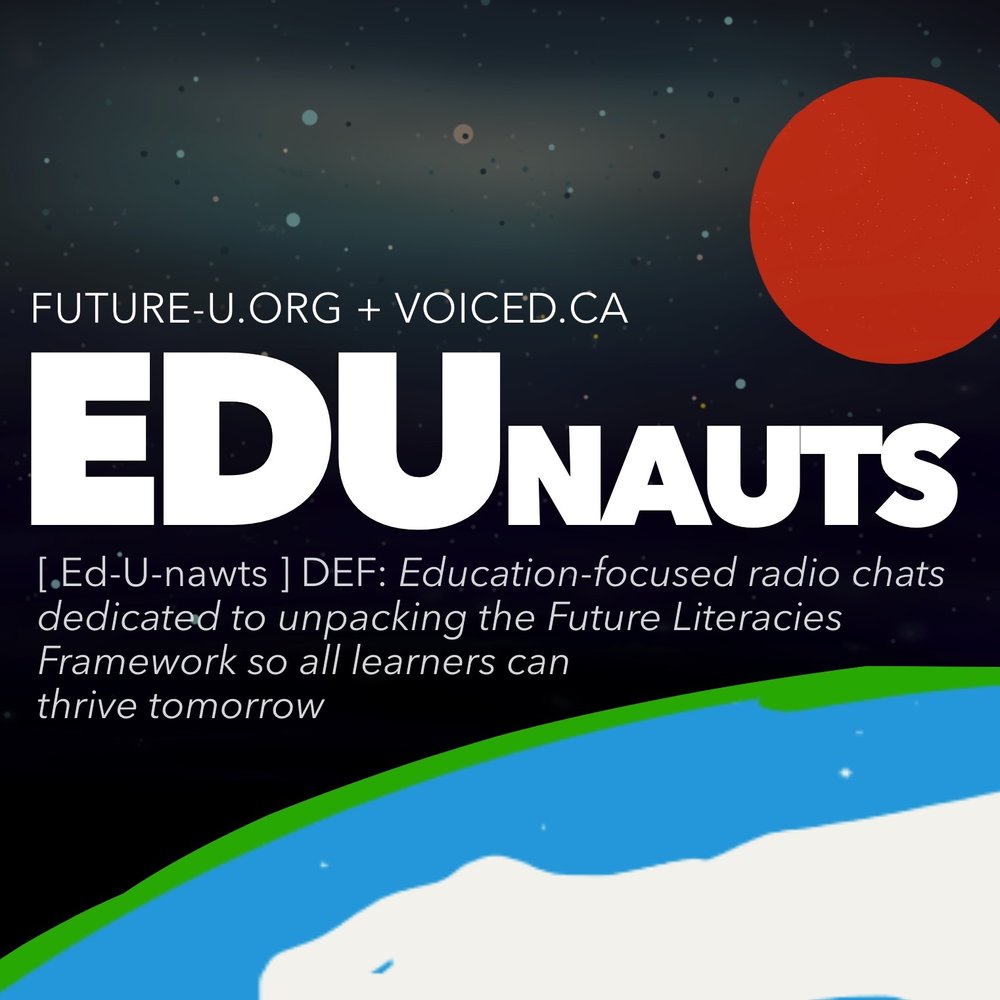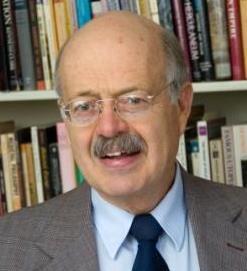An ongoing struggle for some of us who spend way too much time thinking about crazy things is the way our language fails to reflect the changing nuances of what we actually do. It’s a theme that several of us first began discussing nearly a decade ago over dinner, when we realized that terms like “teacher,” “librarian,” and “trainer” no longer fully captured the incredible depth of the work people within those professions do. My own clunky response over the years has been to adopt “trainer-teacher-learner” which, for me, describes what all of us do and share in common—any one of those three words, without the other two, paints an incomplete picture for me. My colleague Jonathan Nalder added to the conversation a few years later with the term “edunaut,” which I absolutely adore and which always seems to elicit smiles when I share it with colleagues in training, teaching, librarianship, and other learning endeavors, but it doesn’t seem to have gained much traction (yet).
Thinking and writing over the past few days about two of the major edunauts in my life (library advocate George Needham and T is for Training podcast host Maurice Coleman) has made me realize how many edunauts have helped—and continue to help—guide me over a very long period of time.
There was, in high school, the magnificent H. Lee Meyer, a gifted math and science teacher whose advanced classes I frankly avoided because I thought, at the time, that they were too complex for me. Lee repeatedly asked me, after I took the required introductory science course he offered, why I didn’t pursue the more advanced aspects of fields he clearly cherished, and I was honest in laying out my fears—at which point he told me that being “chicken” was not a good reason to avoid rewarding learning experiences. The taunt worked: I enrolled in an evening course he taught at the local community college and struggled my way through a very challenging and very rewarding introduction to geometry. What sticks with me and has continued to influence me after all these years is not anything about geometry itself; the real lesson, repeatedly relearned, is that whenever I have hesitated about enrolling in a difficult course for fear that it might affect my grade point average or be something at which I would fail, I remember Lee’s implicit reminder that learning is the willingness to accept challenges whether I believe I can meet them or whether I might fail at them. It has made me a far better edunaut than I would have been without Lee, and it certainly has made me encourage countless others to follow their hearts rather than succumbing to fear of failure.
Another of those crossover high-school-to-community-college edunauts was Floyd Ohler. As I wrote when I discovered (many years after it had happened) that he had passed away in 1994, he “was a wonderful instructor whom I knew peripherally while he was teaching in a local high school in Stockton (California) and whom I came to know at a much more significant level while taking his English 101 course at the local community college there in Stockton during a brief sabbatical from my own university education. He was witty, vibrant, creative, and inspirational, and his two-word critique of the final paper I submitted for that course was transformative: ‘sell it.’ Those words, which I still remember clearly decades after he penned them, opened up to me the idea that I could actually write for publication—something I continue to do to this day. Deeply grateful for what Floyd inspired and for the example he set for any of us willing to pay attention to what he showed in terms of the important roles first-rate teachers play in our lives.” And I still remain deeply grateful that memories of Floyd’s unorthodox approach to teaching—he once spent the first half of one of those marathon evening sessions stretched out on his desk and asking all of us in the class why he should get off his desk—make me realize the transformative impact all of us as edunauts can have on our co-conspirators in learning (aka, students) through the use of just a few well-timed encouraging words.
My years at UCLA put me in contact with quite a few inspirational edunauts, not the least of them being Richard Drake (a Ph.D. candidate teaching two related Italian history courses) and John Fleishman, the inspiring advisor we had during the years I wrote for the UCLA Daily Bruin. Richard’s engaging lectures (which were so densely rich that I always left the classroom with a sore hand from taking copious notes) were among the first to bring history to life for me and instilled in me a lifelong voracious, insatiable appetite for reading and absorbing history books (yes, Richard, I’m still at it, currently working my way through Mary McAuliffe’s wonderful books on Paris from 1848 through 1940); I have continued to learn from him through sporadic exchanges of notes over the years, watching interviews posted on YouTube, and reading some of what he has published, including his delightful biography of historian Charles Austin Beard a few years ago. Attempting to keep up with John has been equally rewarding: his well-received book Phineas Gage: A Gruesome But True Story About Brain Science (c’mon—tell me that title doesn’t make you want to read it immediately!) and his articles for Smithsonian Magazine consistently remind me to follow a lesson he taught me so many years ago: tell your story as quickly and as effectively as you can, then stop long before your reader has a chance to catch his/her/their breath. All these years later, his voice continues to be one that encourages, inspires, and brings a smile to my face whenever I encounter it through his formal writing, his notes to me, and his posts on Facebook.
So many edunauts, so little time to capture even a small percentage of those I have encountered—but two more deserve at least a bit of attention before I bring this latest expression of gratitude to a close: Alec and George Couros. Alec is someone I first met when he offered the transformational #etmooc—the Educational Technology and Media Massive Open Online Course in winter/spring 2013. The course spawned a community of learning that continues to thrive more than 10 years after the formal coursework concluded, and Alec continues to be someone to whom I turn whenever I need a positive jolt; he has joined me as a guest in online courses I have facilitated; very generously blurbed my Change the World Using Social Media; and continues to affect what I do in training-teaching-learning by providing continuing examples of what great learning involves. His brother George continues to be equally encouraging through his writing as well as his cutting-edge approach to learning; his Innovator’s Mindset massive open online course was a stimulating example of how an online book discussion group (centered on one of his books) can effectively incorporate a variety of online tools into a cohesive, transformative online learning experience, and his Innovate Inside the Box exploration of another book, with Instagram as the learning platform, introduced me to Instagram as something far beyond anything I had imagined in terms of using that platform to stimulate and support learning.
The edunauts in our lives are clearly well worth acknowledging, thanking, and emulating. And the real power of what they produce is that, if we are attentive and mindful, we absorb a bit of what they offer and give us cause for being grateful that we can become edunauts, too.
N.B.: This is the thirteenth in an ongoing series of posts on the theme of giving thanks.






 Posted by paulsignorelli
Posted by paulsignorelli 